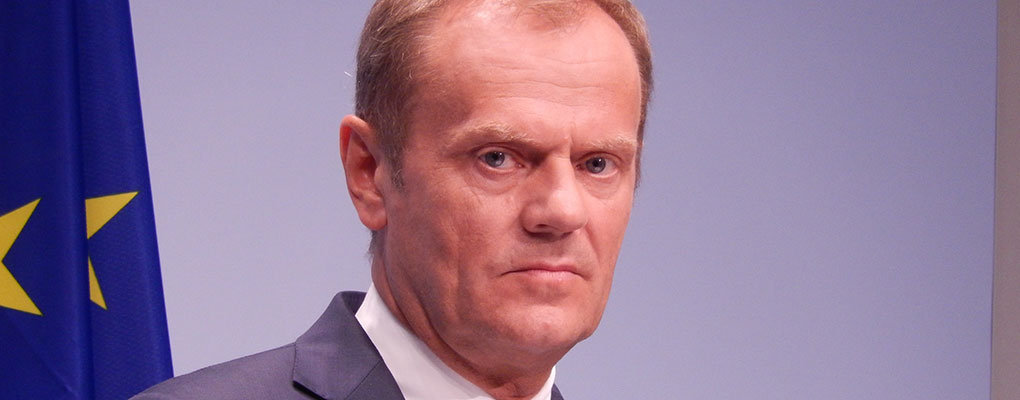
Greek authorities have failed to secure a cash-for-reforms deal with the IMF, following the dramatic walk-out of the fund’s lead negotiators during discussions on June 11. The country’s prime minister Alexis Tsipras would not concede on any reforms proposed by the EU, such as higher value-added tax, which resulted in the negotiations reaching an impasse.
“There are major differences between us in most key areas,” IMF spokesman Gerry Rice is reported as saying. “There has been no progress in narrowing these differences recently and thus we are well away from an agreement.”
European Council President, Donald Tusk, has spoken out against the tactics maintained
by Greece
European Council President, Donald Tusk, has spoken out against the tactics maintained by Greece, warning that there is no longer any time left for “gambling”. It appears that Tusk has abandoned the neutral stance he has maintained through the painstaking discussions, thereby indicating the mounting likelihood that an ultimatum will be given to the incumbent Greek government.
Yet, while the left-leaning Syriza government still fights to unlock funds, which would enable it to make repayments, Tsipras refuses to further enhance austerity measures and make more concessions on areas such as pension benefits. However, time is running out to reach a new deal with the IMF as the upcoming bundle debt repayment of €1.6bn is due at the end of the month. The Greek government is hopeful that a deal can be brokered at the next meeting of Eurozone leaders, which takes place on June 18. But while Tsipras sustains what some may argue is blind optimism, Angela Merkel’s inner circle has begun preparing for a Greek default, including drafting capital controls for Greek banking customers and a debt haircut.
As the stalemate with both the Eurozone leaders and the IMF reaches new levels of intractability, the chance of Greece defaulting grows stronger, which would lead to the unavoidable abandonment of the Euro. The consequences of which is likely to set the country on an even steeper economic downturn than it is currently inflicted with. An economic backlash from a “Grexit” could also send ripples through the rest of the Eurozone.
“Whatever we do, whatever measure we take, no matter what we do, if we don’t start addressing the debt issue, there is no chance that the Greece economy kickstarts,” Greek state minister, Alekos Flabouraris, said in a statement following the walk out of the IMF. “And if the Greek economy doesn’t kickstart, we cannot deal with unemployment, shops will close down.”
Although the Greek population has already suffered through a prolonged period of harrowing austerity measures, sadly, the end to the hardship faced by individuals is not yet in sight. The government has little choice but to buckle to the demands of its debtors, for if it does not, an even greater economic catastrophe for Greece could be round the corner.


